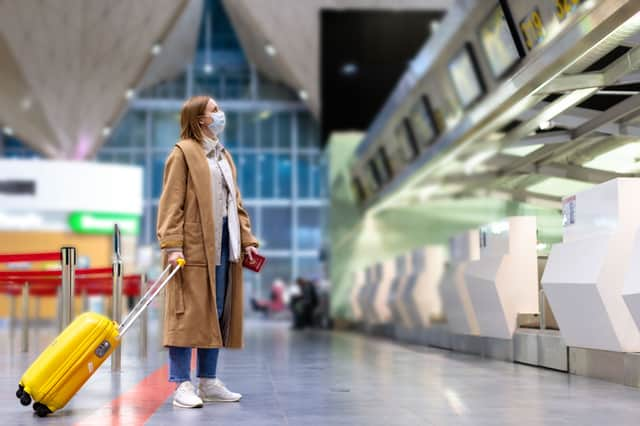The arguments for and against going on holiday during the coronavirus pandemic


Following the introduction of additional restrictions in the UK which have differing implications for people across the four nations, many residents have been left wondering what the new measures mean for their holiday plans this year.
Along with a ban on visiting other households, Scotland’s first minister Nicola Sturgeon urged people in Scotland yesterday not to book holidays for the coming school holidays. She said, “Given that this is a global pandemic, please do not book travel overseas for the October break if it is not essential.”
Advertisement
Hide AdAdvertisement
Hide AdIf you or someone in your household is experiencing symptoms, has tested positive for coronavirus, or been instructed to self-isolate, it is safest not to go on holiday. There are also a number of destinations, stipulated by the Foreign Office, which UK residents are not advised to travel to, due to the risk of contracting coronavirus.
But, those cases aside, is it okay to go on holiday?
Leaving lockdown areas
As well as changes to national restrictions, there are a number of areas across the UK dealing with local lockdowns or increased measures to reduce the spread of the virus in their area. For people living in these areas, the question of going on holiday is different again in many cases.
In England, if you’re in one of the lockdown areas, you can leave for a holiday “but you should only do this with people you live with” according to government guidance for areas in local lockdown.
This becomes slightly more complicated if you have already booked a holiday with people from outside your household. Those who’ve booked a package holiday through a registered travel agent might be able to claim refund, though this will depend on the particulars of the trip.
Advertisement
Hide AdAdvertisement
Hide AdThe rule is slightly different for those in lockdown areas in Wales, where the devolved government has said that going on holiday is not a sufficient reason to leave the area.
Holiday refunds
For those who have booked trips which will now be cancelled, whether their losses will be recovered through consumer protections or insurance will depend largely on the specifics of the trip, how it was booked and the insurance policy used.
If you are legally prohibited from going on a holiday you’ve booked, you should be entitled to a refund, according to a statement put out by the Competition and Markets Authority (CMA) in April.
However, the law is still relatively unclear on this point. While a number of holiday companies have been offering full refunds, this is not guaranteed across the industry. Travel firms Love Holidays and On The Beach recently left the Association of British Travel Agents, following a dispute over refunds relating to coronavirus.
Advertisement
Hide AdAdvertisement
Hide AdTurning to your holiday insurance policy should be a last resort after approaching the company you booked with for a refund, but might be an avenue to getting your money back, depending on when you purchased the insurance and the exact nature of the policy.
Should you go on holiday?
Due to the nature of the pandemic and the position the country now finds itself in, with case levels rising at worrying rates across the UK, many would argue that even if the law technically allows it, going on holiday right now is unsafe and should be put off until the threat of the virus has died down.
On the other hand, there are clear benefits to wellbeing and even health that can come from travel, and many people would likely point out that, if it isn’t specifically banned and you follow all the appropriate guidelines, then a there’s little harm in a holiday - especially to an area with very low levels of coronavirus cases.
A version of this article originally appeared on our sister title, the Sunderland Echo.